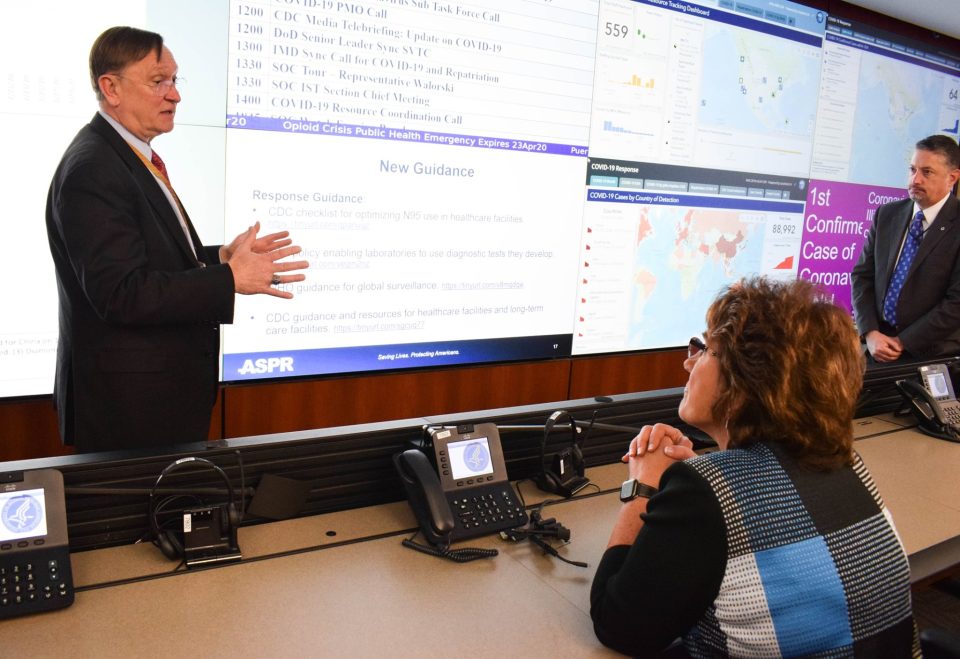Indiana politicians are speaking up about the first appearance of the COVID-19 coronavirus in the Hoosier State.
Congresswoman Jackie Walorski said on Friday that this first case was “something our public health authorities have been preparing for.”
Congressman Jim Banks pointed out that the president signed bipartisan legislation Friday morning to ensure the resources to respond to the outbreak.
Senator Todd Young said he voted to pass $7.7 billion in emergency supplemental funding which has been signed into law.
U.S. Rep. Jackie Walorski released the following statement:
“The first case of coronavirus in Indiana is something our public health authorities have been preparing for, and I’m confident they are doing everything possible to keep Hoosiers healthy and safe. Fortunately, because the patient and health care providers did everything right, the health risk in our communities remains low. I have been in contact with numerous state and local officials and will continue working to ensure they have the resources and information they need to fight coronavirus.
“I encourage all Hoosiers to continue taking simple but important precautions: wash your hands frequently, avoid touching your eyes, nose, and mouth, and stay home if you are sick.”
After the Indiana Department of Health confirmed the first case of coronavirus in the state, Rep. Jim Banks updated his website to include helpful resources related to the coronavirus.
Resources include:
- The latest information on coronavirus in Indiana
- Instructions for those experiencing symptoms
- Instructions for foreign nationals here who cannot go home due to travel restrictions
- Instructions for those planning to travel abroad
- Tips for prevention
U.S. Senator Todd Young (R-Ind.) released the following statement:
“As of this morning, the Indiana State Department of Health (ISDH) has confirmed the first Hoosier case of coronavirus. Under the leadership of Governor Holcomb, the state, in coordination with our medical community, was prepared and ready to respond. To further help our state and local governments in the days to come, I voted to pass $7.7 billion in emergency supplemental funding which has now been signed into law. I urge Hoosiers to continue following ISDH’s guidance to prevent the transmission of coronavirus, including washing your hands and staying at home if sick. I will continue to work closely with our state and local officials as the situation unfolds,” said Senator Young.
Additional background on the emergency supplemental funding:
The package provides $7.7 billion in emergency supplemental funding to our state and local governments, as well as federal agencies, to help prepare and respond to coronavirus.
- The legislation includes $3.1 billion for the Office of the Assistant Secretary for Preparedness and Response to purchase additional medical supplies for the Strategic National Stockpile; support the research and development of vaccines, treatments; and diagnostic tests; and support preparedness for hospitals and health systems.
- The legislation includes $2.2 billion for the Centers for Disease Control and Prevention:
- Including $1 billion dollars that will go to state and local governments.
- Including $300 million for the Infectious Disease Rapid Response Reserve Fund, the fund that Congress created in fiscal year 2019 that provided the initial funds for HHS to respond quickly to threats like coronavirus.
- Including $300 million to continue CDC’s support for global health security, which improves public health systems around the world so that diseases can be contained sooner.
- The legislation includes $826 million for the National Institute of Allergy and Infectious Diseases, a part of the National Institutes of Health, for research and development of vaccines, treatments and diagnostics.
- The legislation includes $1.25 billion for the Department of State and USAID to continue our international response.
- The package also allows Medicare to lift telehealth restrictions so our seniors will be able to receive care at home to avoid contracting the virus and allow health systems to mitigate transmission of the virus.

